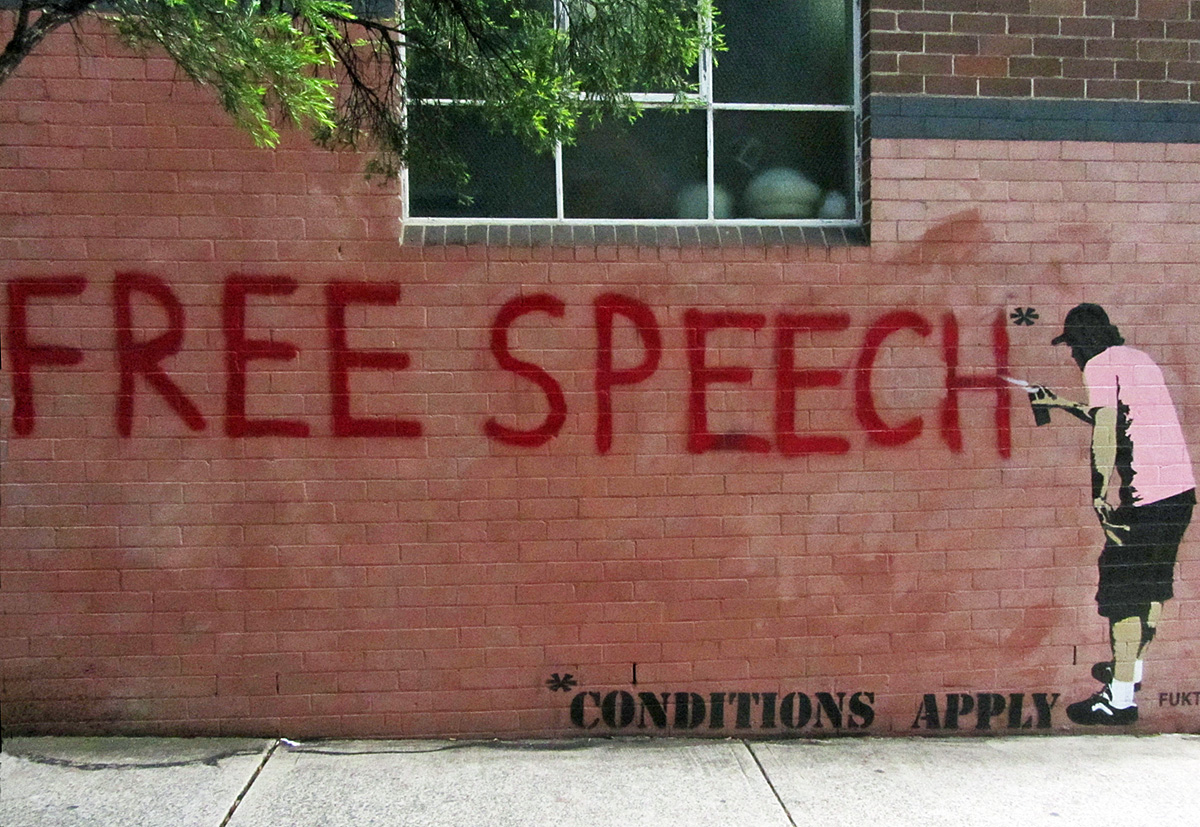In recent days, a couple of campus debates about freedom of speech made national news. In Atlanta, Emory University students protested the appearance of chalk writings around the campus that read “Trump 2016” and other pro-Trump messages. Emory President James Wagner rewarded these students with a four-step plan of action and promised that security footage would be reviewed to find those responsible.
Meanwhile, in California, the University of California Board of Regents engaged in tumultuous debate about the legitimacy of “anti-Zionism” on the campus. After initially declaring that “anti-Zionism and other forms of discrimination have no place at the University of California,” the board settled on condemning “anti-Semitic forms of anti-Zionism.”
In today’s college environment, there is a fine line between building a dynamic educational environment with diverse viewpoints and over-policing free speech. As the most recent season of South Park explored with its character PC Principal, this is only the latest of these debates. What makes this month’s events interesting is that the speech monitors have come full circle. While Trump chalk is ostensibly a right-wing phenomenon, “anti-Zionism” tends to come from the left.
There is no doubt that Trump’s rhetoric is inflammatory and offensive to many. However, it is childish to run directly to an authority figure every time an opinion one disagrees with is visible. A university education is not preparing graduates for the real world when it indulges misled students with the same remedies that apply to kindergarten name-calling.
In the other case, anti-Semitism is certainly unacceptable, and as the Board of Regents contends, it is probably true that it is sometimes thinly veiled under the guise of “anti-Zionism.” Nonetheless, vague condemnations are unhelpful because they can only lead to debates over regulations rather than discussion of the actual issues.
It is all too easy to run to authorities after hearing unwanted or hurtful speech and all too convenient for risk-averse administrators to bend over backward to comply with complainants’ demands. So quickly ceding power over speech to authorities is inconsistent with American values. When faced with upsetting words, the proper response is to exercise your own First Amendment rights rather than look to authorities to abridge someone else’s. The precedents set in these recent cases will only encourage more demands on speech limitations. Administrations should maintain open dialogues with protesters but not assume refereeing duties over what is allowed to be said.
We do not look back in shame at the era of McCarthyism because we endorse the views of pro-Soviet sympathizers. It was an embarrassing time because the effort to maintain national security was itself a departure from what America was supposed to stand for. The principles of free speech are not easy to stand with, and it takes courage to uphold a marketplace of ideas.
In today’s polarized political climate, some young people are too eager to give away control of the limits of discourse without thinking about the big picture. In some cases, it seems as though certain people are asking to take steps in an Orwellian direction. Political winds will blow authorities in different directions and must not be relied upon to regulate public thought. No matter what kinds of unappealing speech might surface, it is imperative that those speakers do not cause us to abandon our core principles. If college administrators wish to create a learning environment, they should instead use future situations of this type to give students a civics lesson about the value of free speech.
Daniel Galitsky is a senior economics and finance major. He can be reached at dgalitskydbk@gmail.com.



